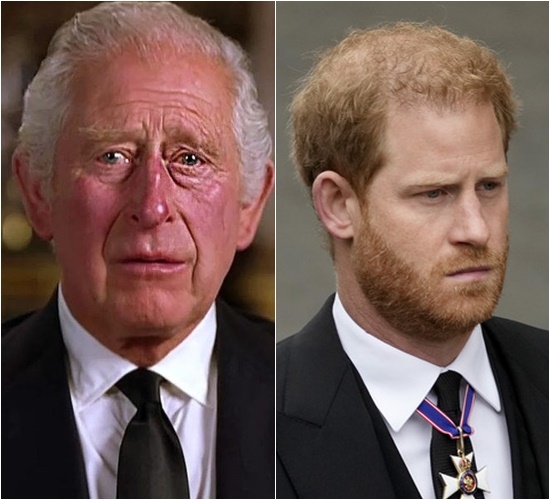In a shocking turn of events, Prince Harry was diagnosed as free from hereditary cancer linked to Charles, with DNA test results revealing that his biological father is actually someone entirely unexpected. This revelation has not only sent ripples through the royal family but has also sparked widespread discussion about identity, legacy, and the nature of familial bonds.
The news broke when Harry decided to undergo genetic testing, a decision driven by both personal health concerns and the desire to understand his family’s medical history. Given the high-profile nature of the royal family, any information regarding health issues, particularly those as serious as cancer, is of immense public interest. With Charles having faced various health challenges in the past, the prospect of hereditary conditions loomed large in Harry’s mind. However, the results of the tests turned out to be a double-edged sword: while he was relieved to learn he was free from the hereditary cancer, the revelation of his biological father prompted a whirlwind of emotions and questions.
The implications of this discovery extend far beyond Harry’s health. It raises profound questions about his identity and the nature of his upbringing. Harry has often spoken about the struggles of living in the public eye and the challenges he faced as a member of the royal family. This revelation adds another layer to his narrative, forcing him to confront his identity in a new light. For years, he has been seen as the son of Charles and the late Princess Diana, but now, with this new information, he must navigate a reality where his lineage is different from what he believed.
The public’s reaction has been mixed, with some expressing shock and disbelief, while others are more sympathetic, understanding the complexities of family dynamics. The media frenzy surrounding this revelation has been immense, with various outlets speculating about the identity of Harry’s biological father. The royal family has remained tight-lipped, but insiders suggest that this revelation could change the dynamics within the family, especially in how they perceive Harry and his place among them.
This situation also brings into focus the broader theme of legacy. What does it mean to inherit not just physical traits, but also emotional and psychological legacies? Harry’s journey has often been about breaking free from the constraints of royal expectations and forging his own path. The revelation of his biological father could serve as a catalyst for further exploration of his identity and purpose. It might empower him to advocate for issues that resonate with him on a deeper level, independent of royal traditions.
Moreover, the subject of genetic testing raises important ethical questions. As advancements in science make it easier to uncover family histories and genetic predispositions, individuals are faced with the dilemma of whether to seek out such information. For Harry, this decision has led to a significant personal transformation, forcing him to confront aspects of his identity that were previously obscured.
In conclusion, Harry’s diagnosis of being free from hereditary cancer, coupled with the revelation of his biological father, has opened a new chapter in his life. This moment is not just about health or family lineage; it is a profound exploration of identity, legacy, and the complexities of human relationships. As Harry navigates this new reality, the world watches with bated breath, eager to see how he will define himself in the wake of this unexpected revelation. The journey ahead is sure to be filled with challenges and growth, as he learns to embrace his true identity and the legacy that comes with it.
